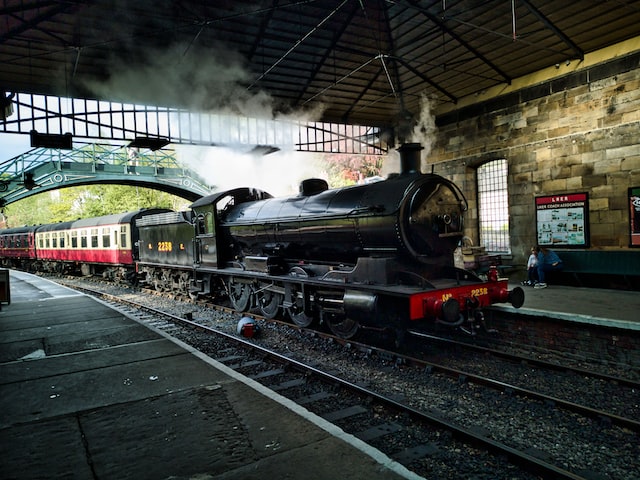Britain’s train service is stuck on a track that leads nowhere
Enlarge

A. A Milne, the English writer best known for inventing Winnie the Pooh, the loveable teddy bear character with very little brain, once said “Nowhere can I think so happily as in a train”.
Were he living in Britain in 2022, Milne would probably have got very little thinking done and certainly not any happy thinking at all. That’s because he wouldn’t have been on a train, which would probably have been cancelled or grounded by a drivers’ strike.
Train cancellations and strategic strikes are spread right the way through the holiday season bringing misery and dampening the animal spirits of businessmen, punters of all sorts and people who planned to raise a glass or two to Christmas and the new year.
Indeed, the train service in Britain has become so unreliable, it’s hurting the econom.
Few realise that this might so nearly have happened across the pond as well but decisive action in Washington, DC shows why the US is not the UK.
In the UK, according to a recent estimate by The Guardian, train cancellations are at their highest level since records began in 2015. The survey said that about one in 26, or just under 4 per cent trains are being cancelled across the country. Operators in the north of England – which is supposed to be levelled-up somehow – are doing significantly worse. According to an estimate by Transport North East, unreliable trains are costing the northern economy around £400m a year.
This is happening because the northern region’s trains have a pressing shortage of people to drive them. Apparently, the business model relies on drivers being willing to do extra shifts on rest days and earn a substantial pay packet by doing overtime. But strikes because of pay dissatisfaction – they haven’t had a pay rise in more than two years – means drivers aren’t doing extra shifts or overtime.
The personnel crisis is paired with something deeper. Poor infrastructure because of of years of under-investment. Jamie Driscoll, the first mayor of the North of Tyne Combined Authority, which includes Newcastle upon Tyne, North Tyneside, and Northumberland, all in north-east England, recently offered an interesting observation. On November 30, Mr Driscoll told the Today Programme: “The infrastructure is Victorian, the signalling is the old-fashioned semaphore you’ll see from black and white movies … You can only get six trains in and out of Newcastle an hour heading south to the rest of the country.”
Indeed, even the rail line running from Liverpool to Hull is not electrified.
And so the whole rickety business of running trains in Britain, especially to and from the north, is coming to a screeching halt this Christmas.
As I said before, this might so easily have happened in America as well. But it didn’t. Why? We’ll look at that next.
Also read:

